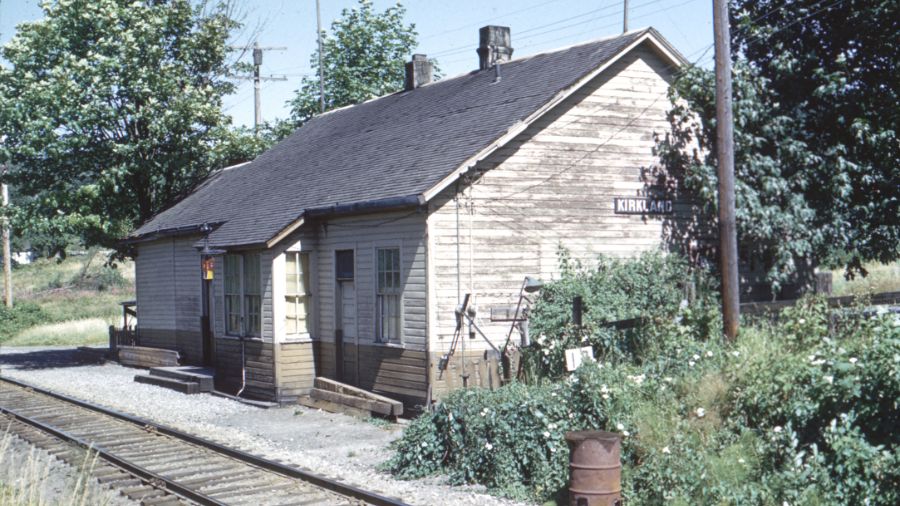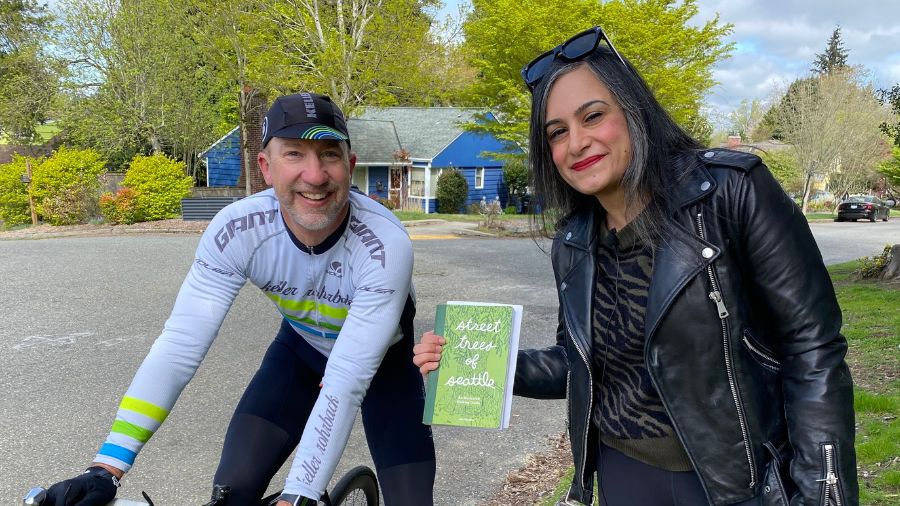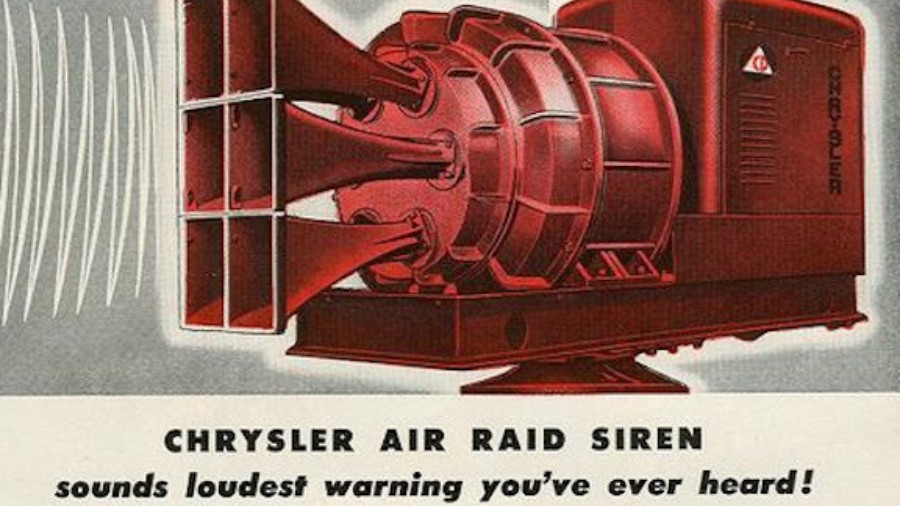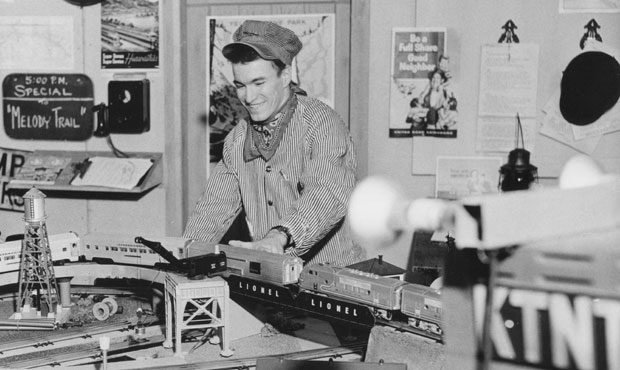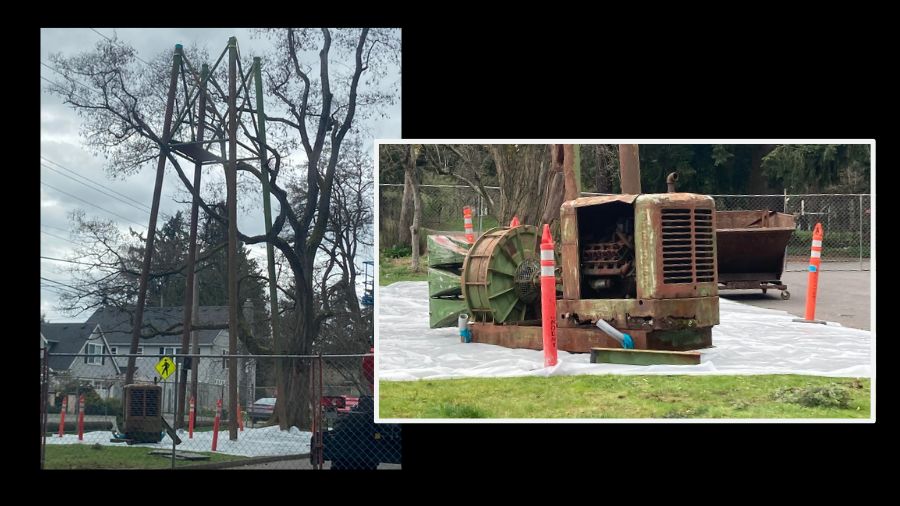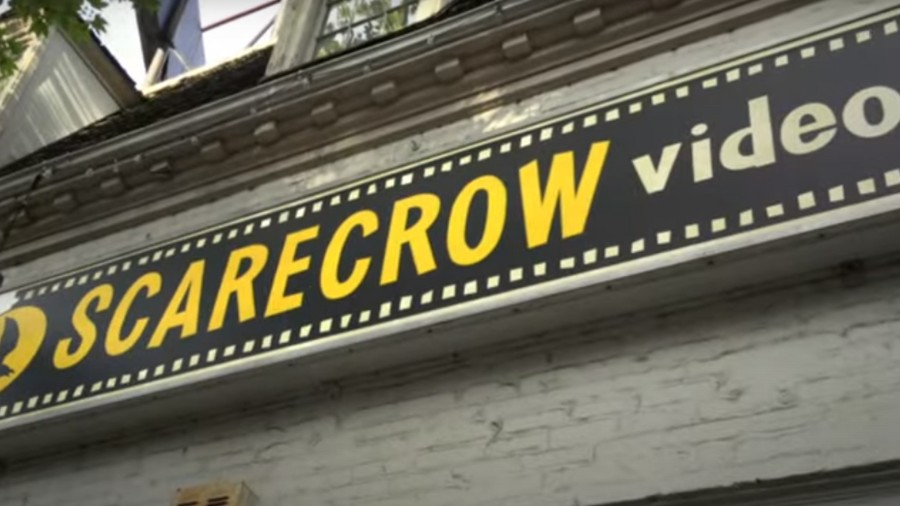Remembering the night Larry King broadcast live from the Space Needle
Jan 18, 2023, 7:14 AM | Updated: 8:25 am
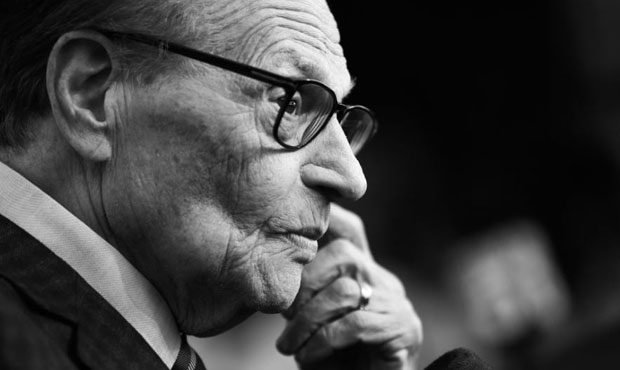
Mutual Broadcasting’s Larry King Show – once did a live national broadcast from the Space Needle in Seattle. KIRO Radio was the first Seattle station to carry the Larry King Show, beginning right about the time the program first came on air from Washington, D.C., in the spring of 1978. (Getty Images)
(Getty Images)
When Larry King passed away in 2021, he was lauded for hosting a popular TV talk show on CNN for decades. But true “Larry Lovers” remember him first as a radio guy hosting a late night phone-in program starting in the late 1970s.
That radio program – Mutual Broadcasting’s Larry King Show – once did a live national broadcast from the Space Needle in Seattle.
KIRO Radio was the first Seattle station to carry the Larry King Show, beginning right about the time the program first came on air from Washington, D.C., in the spring of 1978. In April 1980, the show moved from KIRO to KVI, which had recently adopted the news-talk format.
In October 1981, Larry King took his program on a tour of the West Coast. The tour included three nights in Los Angeles and one night in Portland, where the program was broadcast live from the Benson Hotel. But the four-decades-ago western tour began with a Monday night show live from the Space Needle on Oct. 26, 1981.
A radio broadcast from the Space Needle was nothing new; multiple stations in Seattle had originated programs from the landmark tower over the years since the 1962 World’s Fair, including KING Radio, whose Frosty Fowler had been on duty and on-air during the 1965 earthquake.
But a national broadcast was a bigger deal.
The local event was organized and produced by the staff of KVI. Beginning at 9 p.m. Seattle time, a live audience of local “King-aholics” listened in and looked on – in three separate “shifts” of ticketholders – on the observation deck level, one floor above the restaurant. Coffee and pastries were served, though it’s not clear what brand of coffee made the cut in Seattle in 1981. As for the pastries, Larry called them “CROO-sahnts” in his trademark Brooklyn accent.
A total of five-and-a-half hours of live programming originated from the Space Needle that Monday night and early Tuesday morning 40 years ago. The final two-and-a-half hours – from midnight until 2:30 a.m. Seattle time – was mostly “Open Phone America,” with callers from across the United States addressing whatever topic they wanted to talk about with Larry, along with some news and other features in the closing minutes of the show. Other than the occasional local reference and the audience laughter, it could’ve been any other night on the show.
But the first three hours were devoted to guests from the Seattle area. Hour one was Tom Riedinger from Boeing; hour three was former EPA Administrator and Deputy Attorney General (and Nixon era “Saturday Night Massacre” victim) William Ruckelshaus, who in 1981 was working for Weyerhaeuser (and who passed away in 2019).
Forty years later, it’s hour number two that contains the most interesting local content from a historical perspective.
From 10 p.m. to 11 p.m. local time, Larry was joined by two legendary Seattle historians – both now deceased – Murray Morgan, who wrote the classic Seattle history book “Skid Road,” and Bill Speidel, who popularized the Seattle Underground tour.
Highlights from the conversation come whenever Larry marvels at local oddities and tries to understand Seattle from the perspective of two of her most dedicated storytellers.
Here’s Larry King asking Bill Speidel to explain what the Seattle Underground is.
Both Speidel, who was nearly 70 in 1981, and Murray Morgan, who was just a few years younger, were clearly of the curmudgeonly variety of local historian, who could border at times as anti-boosters of the city. And it was just a month before Larry King’s Space Needle broadcast that Seattle had adopted its “Emerald City” tourism slogan.
Thus, the “Emerald City” topic must have been on Larry’s list – if the famously un-prepared broadcaster even had a list – and it seems to have come up earlier in the hour than he expected, based on this exchange with Speidel and Morgan.
October 1981 was also early in the history of the late, great multi-purposed domed stadium known as the Kingdome. Both Speidel and Morgan expressed their grudging approval of the facility, though Morgan hadn’t set foot in it – and still clearly preferred his memories of the Seattle Indians of the 1930s.
Mariners and Seahawks aside, Larry King had his own theory about the “message” that construction of the Kingdome sent to the rest of the world.
King, Speidel, and Morgan covered a lot of ground that sounds familiar today to anyone lamenting Seattle’s rapid growth and the growing congestion of the streets. To Morgan’s credit, he did approve of the “vitality” of Seattle, and its attractiveness to tourists and new residents, as long as the city stayed more medium-sized rather than large.
Speidel was happy as long as those visitors paying $2.50 to take his tour got back on the bus or the plane afterward, and headed back to wherever they lived.
Though the curmudgeonly progenitor of “Lesser Seattle” – the newspaper columnist Emmett Watson – and the decades-long campaign to discourage new settlers are not mentioned by name, similar sentiments are hard to miss in the old tape. Late in the conversation, it finally dawns on Larry King what both Speidel and Morgan were saying to the national audience between the lines.
While guests on the Larry King Show helped showcase particular topics, for many listeners, the most entertaining part of the program was “Open Phone America.” During this unpredictable segment, anyone willing to pay for the long-distance charges could phone in and get a few seconds – or, maybe a few minutes – with Larry and the rest of the country.
A woman from Tacoma got through to Larry late in the Seattle show – and very early in the morning – as he neared the end of his brief Space Needle tenure. She covers a lot of ground, from changing future Major Leaguer Ron Cey’s diapers, to admiring former Pierce County politician (and Larry King’s old friend) Harry P. Cain.
Along with the guests and the callers, one thing many people – OK, mostly radio nuts – miss from the old Larry King Show and from network radio in general is the network cue tone or, for the Mutual Broadcasting System specifically, the “Mutualert.”
This audio artifact was a short sound, sometimes nearly inaudible, which was used to manually cue affiliate stations for newsbreaks and commercials and, in some cases, to automatically activate equipment that played local commercials, local weather or local newscasts.
A quick listen – or maybe several quick listens – will make it clear why the cue tone heard during the Larry King Show is fondly referred to by many as the “Mutual BEE-doop.”
Mutual was folded into Westwood One in 1999, but the bee-doops apparently lived on for a while after that. CBS, which had its own similar tone, ditched their version in 2009.
As for Larry King’s relationship with the Emerald City, the legendary broadcaster returned to Seattle at least one more time – to host the opening ceremonies of the Goodwill Games and marvel at such local phenomena as “The Wave” cheer and Kenny G – for Turner Broadcasting in July 1990.
Editors note: This story was originally published Jan. 27, 2021
You can hear Feliks every Wednesday and Friday morning on Seattle’s Morning News with Dave Ross and Colleen O’Brien, read more from him here, and subscribe to The Resident Historian Podcast here. If you have a story idea, please email Feliks here.


